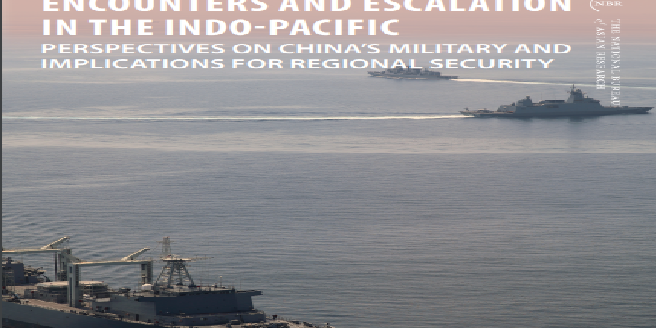Author: Shusuke Ioku Ph.D. Student at the Department of Political Science, the University of Rochester, for Pacific Forum
Abstract
Strong military commitments by stronger allies to defend weaker partners is just one necessary component of extended deterrence to limited (gray zone) aggression. Another essential part is the weaker partners’ presence in disputed domains. In the context of the South China Sea, given the vast capability gap between China and Southeast Asian claimants, bolstering the latter’s control of and presence in disputed domains through material assistance focused on offshore patrolling assets and ISR capabilities (such as drones and space-based monitoring systems) is critical to preserving the status quo. This study employed a quantitative data analysis of territorial conquests and a formal analysis of gray zone conflict to support the claim.
Click here.to access the full paper at Pacific Forum (pp. 31-39).
This paper is the Fourth Chapter of the Pacific Forum’s Issues & Insights Vol. 22, SR1, pp. 31-49.
Shusuke Ioku is a Ph.D. student at the Department of Political Science, the University of Rochester where he studies formal Political Theory and International Relations. His current research projects address inefficiency of coercive diplomacy and subnational political consequences of Chinese economic statecraft. He has a particular interest in gray-zone maritime disputes in the East and South China Seas since he did an internship at the Asia Maritime Transparency Initiative under the Center for Strategic and International Studies. Before coming to the United States, he received an M.A. in Political Science from Waseda University and B.A. in Philosophy from the University of Tokyo.
Authors of this volume participated in the inaugural U.S.-Japan Next-Generation Leaders Initiative, sponsored by the U.S. Department of State, through the U.S. Embassy Tokyo. With backgrounds from academia, government, military and industry, the cohort brings rich insights on the past, present, and future of the U.S.-Japan bilateral security relations.
The statements made and views expressed are solely the responsibility of the authors and do not necessarily reflect the views of their respective organizations and affiliations. Pacific Forum’s publications do not necessarily reflect the positions of its staff, donors and sponsors.
Feature Image: U.S., Japanese ships conduct a passing exercise in the South China Sea July 7th, 2020 / U.S. Indo-Pacific Command Flickr


